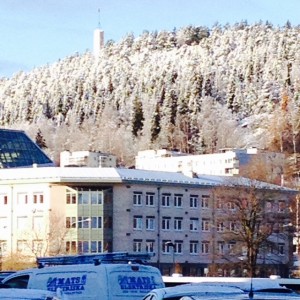
I’ve just got back from two days in Sundsvall working as a language trainer with a group of European Works Council reps at SCA.
One issue that came up was Swedish words that have two different meanings in English. If you are thinking in Swedish and then translating, the danger is that you will choose the wrong one.
First rykte. This means either rumour or reputation. Two very different things.
There’s a rumour going round that she will resign.
Forget the rumours! Let’s stick to the facts.
A rumour is an unsubstantiated story.
The company’s reputation was badly damaged by all the negative publicity.
The hotel has an excellent reputation.
Reputation is the commonly held opinion of a person, company etc. If you have a bad reputation, you are infamous or notorious!
Säkerhet has two meanings: safety and security. Here they are related to each other but different nevertheless. Safety concerns the prevention of accidents and injuries to people. Security concerns the prevention of theft and damage to property.
We take the safety of our workforce very seriously.
The regular safety rounds help to identify accident black spots.
There have been too many thefts. We need to improve security.
Guards patrol the perimeter to ensure maximum security.
Sometimes when translating we encounter sentences where both these meanings are implied by säkerhet. In this case, both the English words need to be used.
We have developed an action plan to increase safety and security at the factory.




